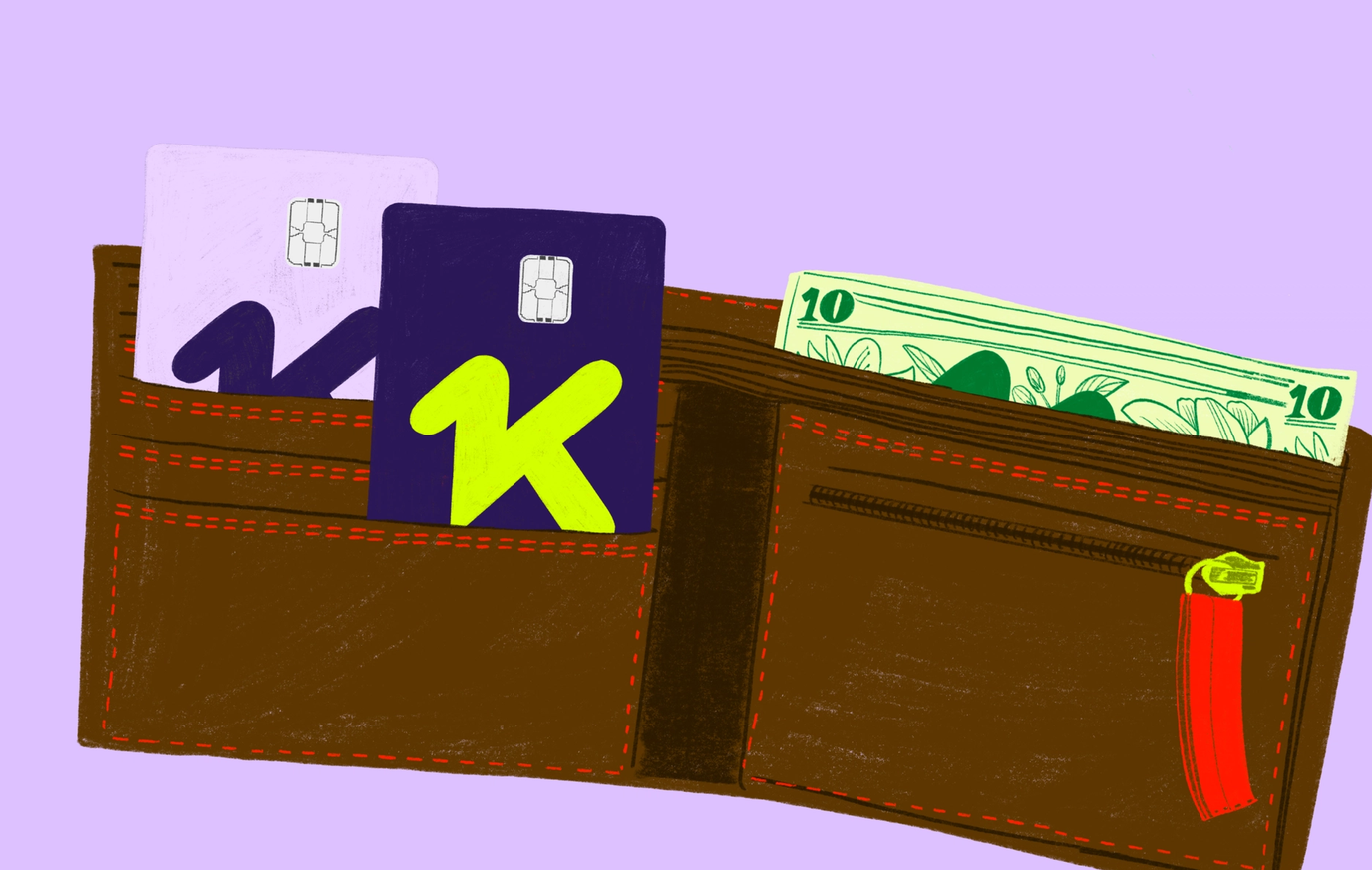Earn up to 3.5% interest on every dollar of your savings
Yes, sometimes, but most dealerships will only let you put part of the car purchase on a credit card (often a deposit or a small portion of the total).
Many dealers limit credit card payments because of processing fees and the risk of chargebacks.
Make Big Purchases Easier With KOHO Essential
If you are saving up for a car (or trying to avoid going into credit card debt), the KOHO app can help you budget and stay in control since you are spending your own money.
With KOHO Essential:
It has a low monthly plan fee that can be waived when you set up direct deposit or add +$1,000.
Use a prepaid Mastercard® for groceries, bills, subscriptions, and travel.
Grow your savings with a 2% interest savings rate on your entire balance.
Earn 1% cash back on groceries, eating & drinking, and transportation.
You can subscribe to Credit Building for $10/month, it's an affordable way to build your credit history.
Enjoy unlimited transactions and free e-transfers (never worry about fees when sending money to someone again).
Why Dealers Often Say “Only a Deposit”
Dealerships pay fees every time they accept a credit card. On a big purchase like a car, those fees can get expensive fast.
That’s why many dealers will:
Allow a credit card deposit to hold the car
Cap the credit card amount (example: $1,000 to $5,000)
Ask you to pay the rest with bank draft, debit, wire, or financing
What to Ask the Dealership
If you want to try using a credit card, ask these questions first:
“Do you accept credit cards for car purchases?”
“What is the maximum I can put on a card?”
“Is there a credit card fee?”
“Will it be processed as a purchase (not cash advance)?”
“Can I split it between card and another payment method?”
When Paying by Credit Card Can Make Sense
It can be worth it if:
You are only paying a small portion (like a deposit)
There is no fee, or the rewards are worth it
You can pay your card off in full right away
If you carry a balance, interest can wipe out any rewards.
Better Ways to Pay for Most People
For the full amount, most people use:
Financing (dealer or bank)
Bank draft / certified cheque
Debit (sometimes with a daily limit)
Wire transfer (more common for large amounts)
